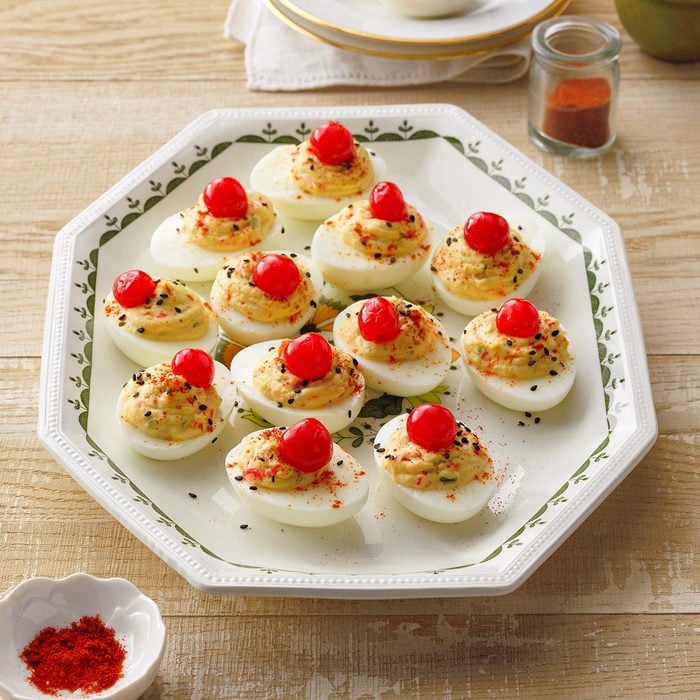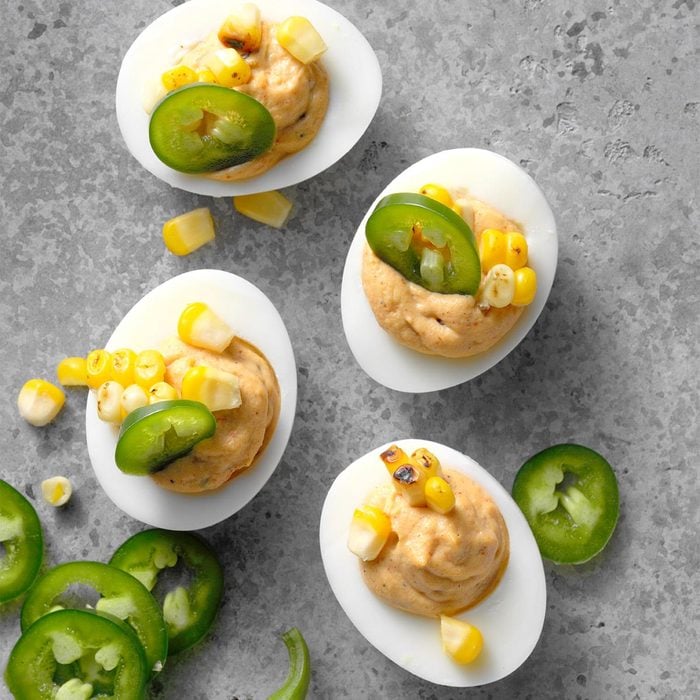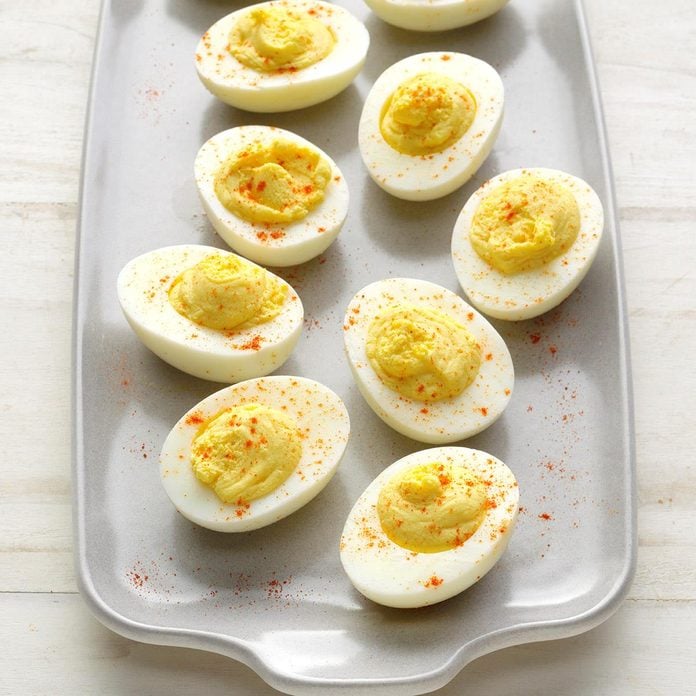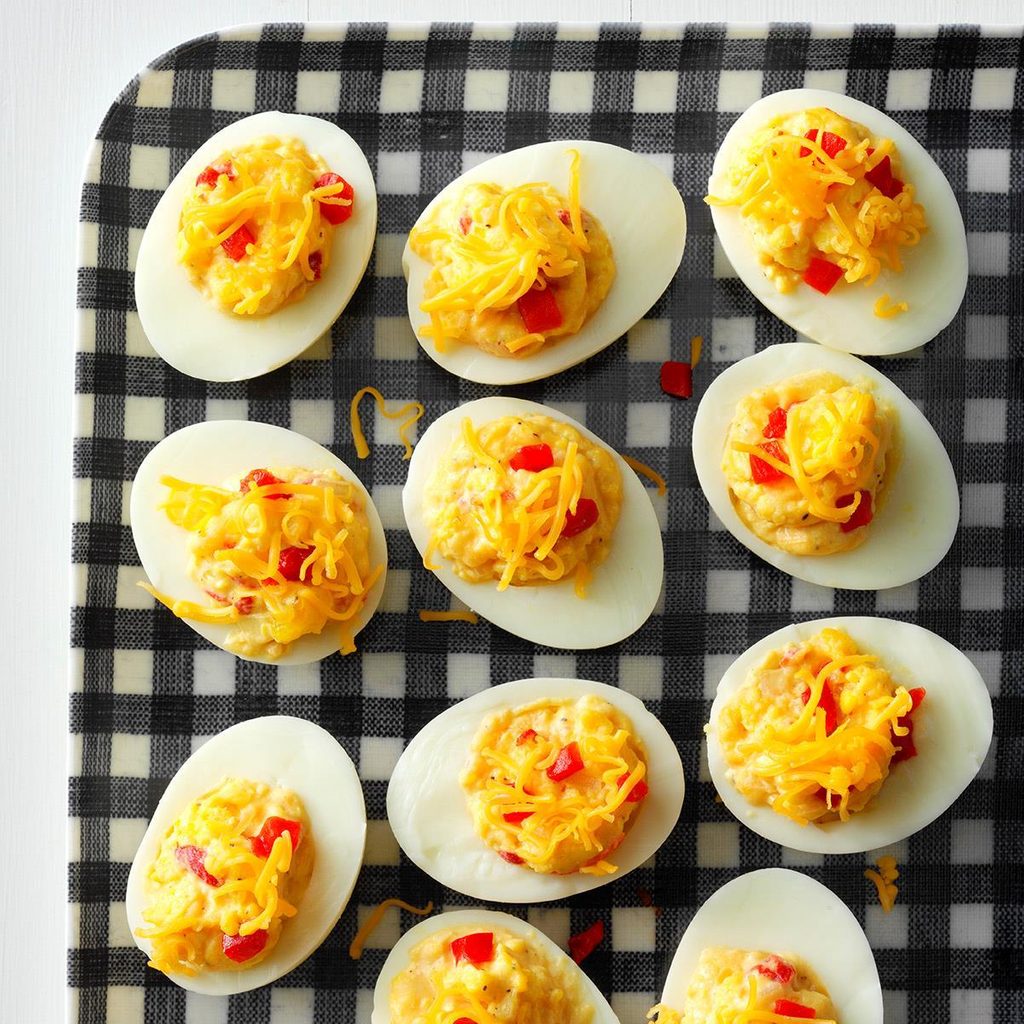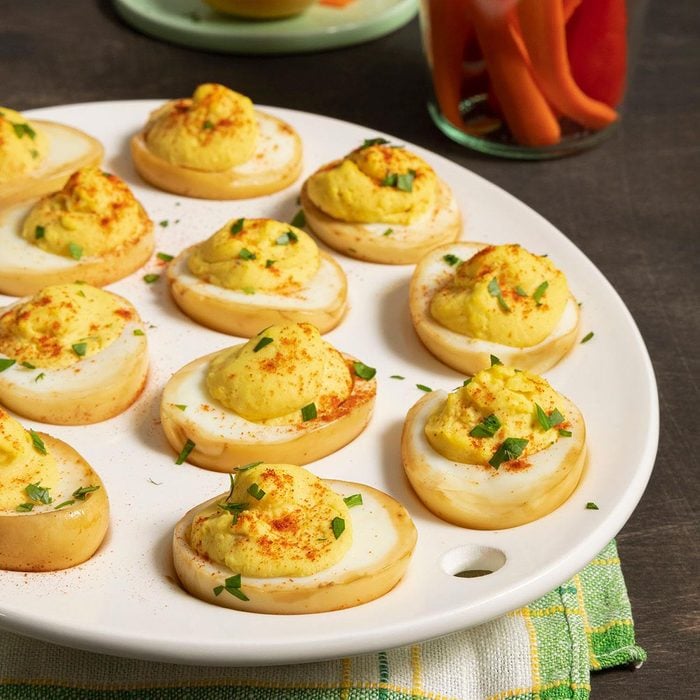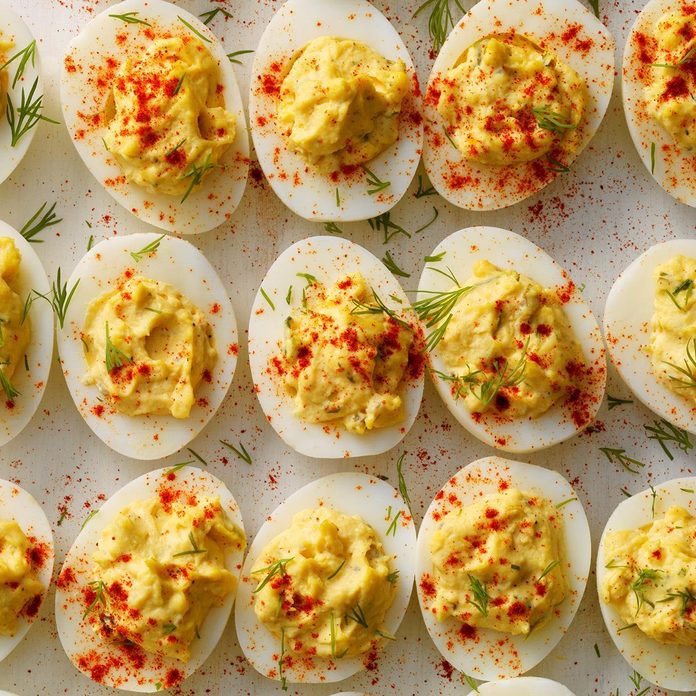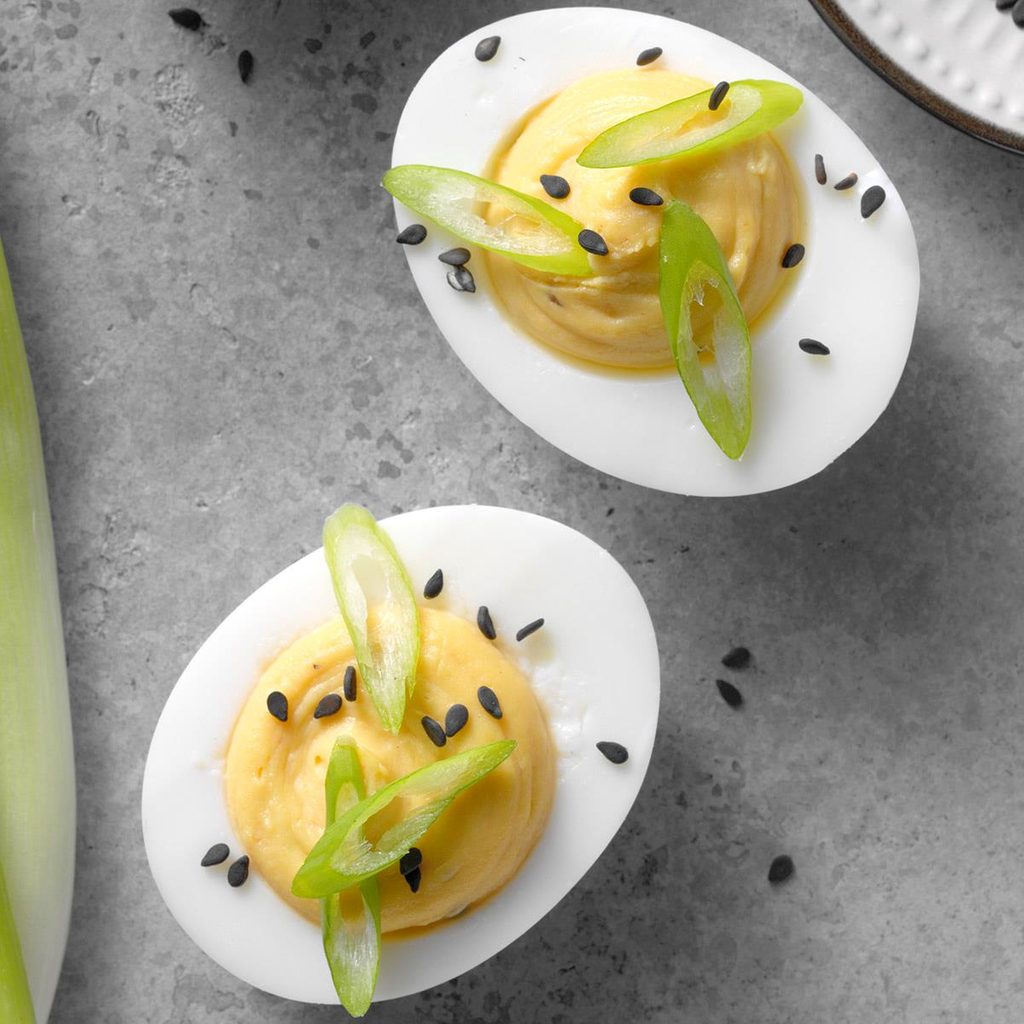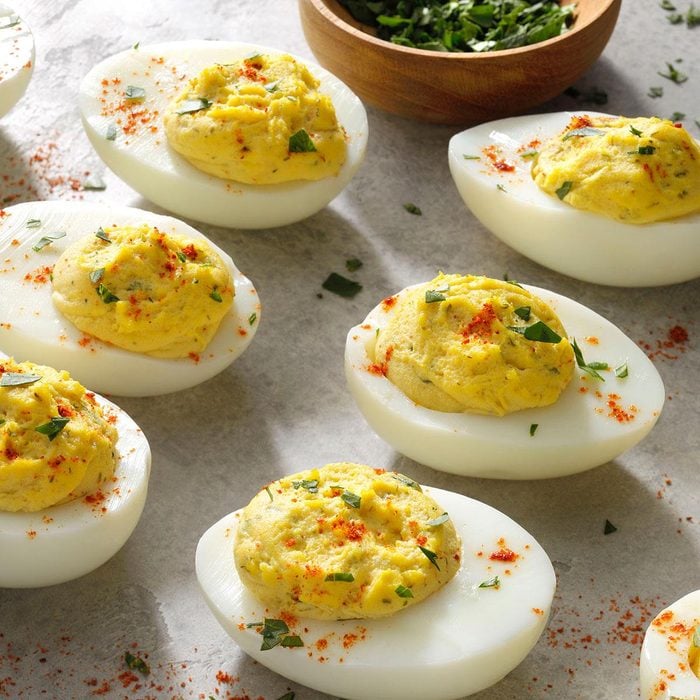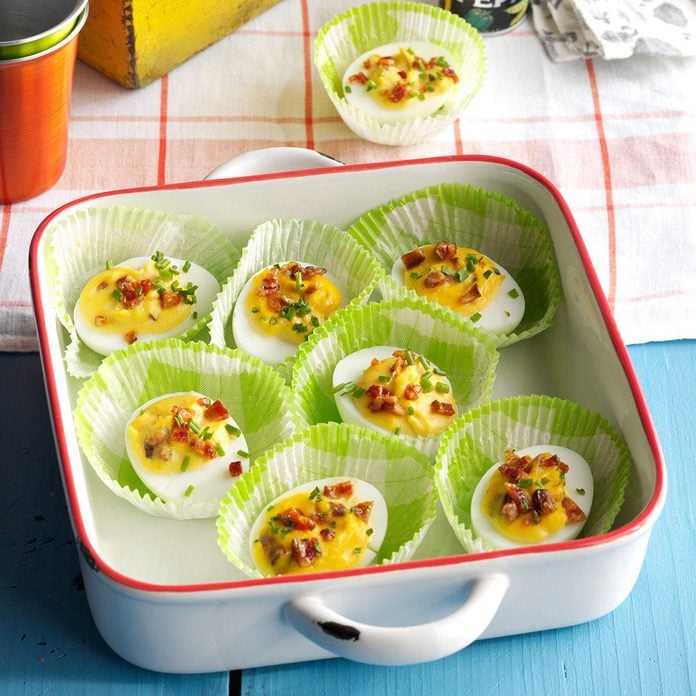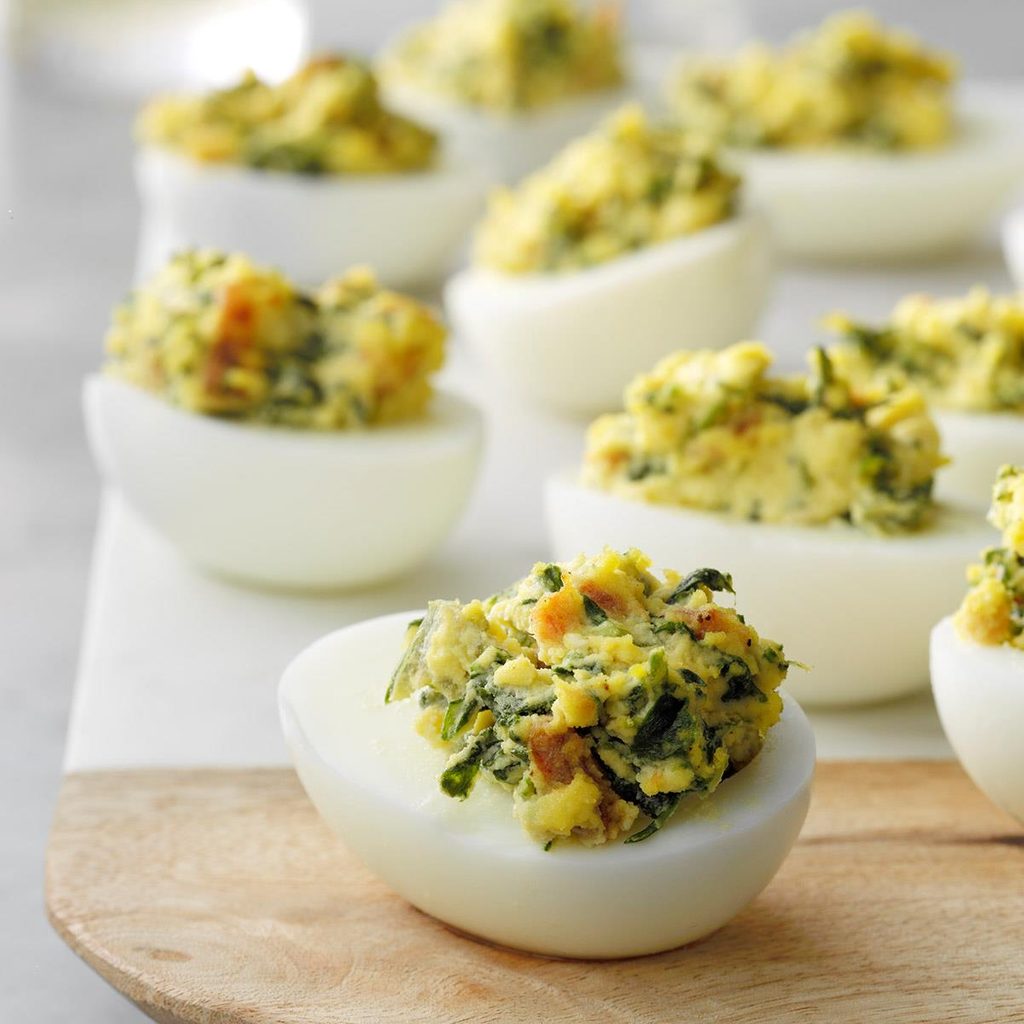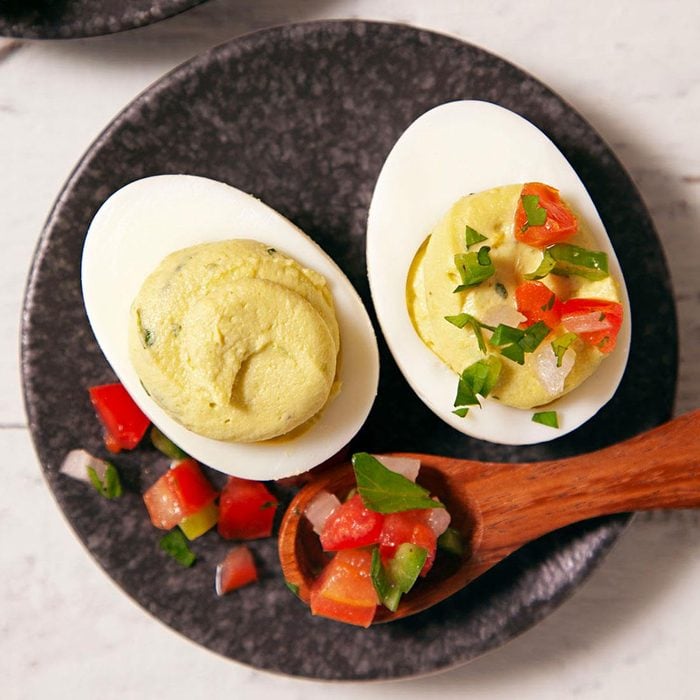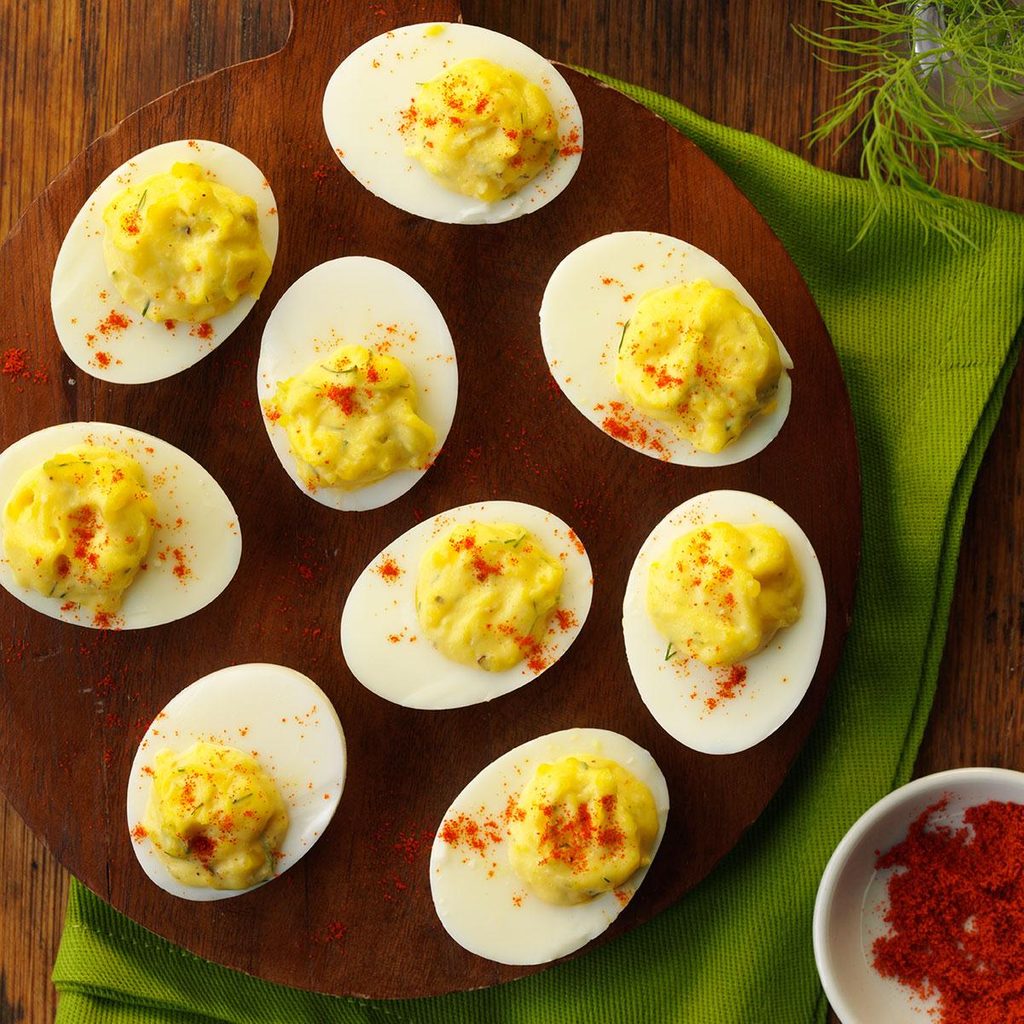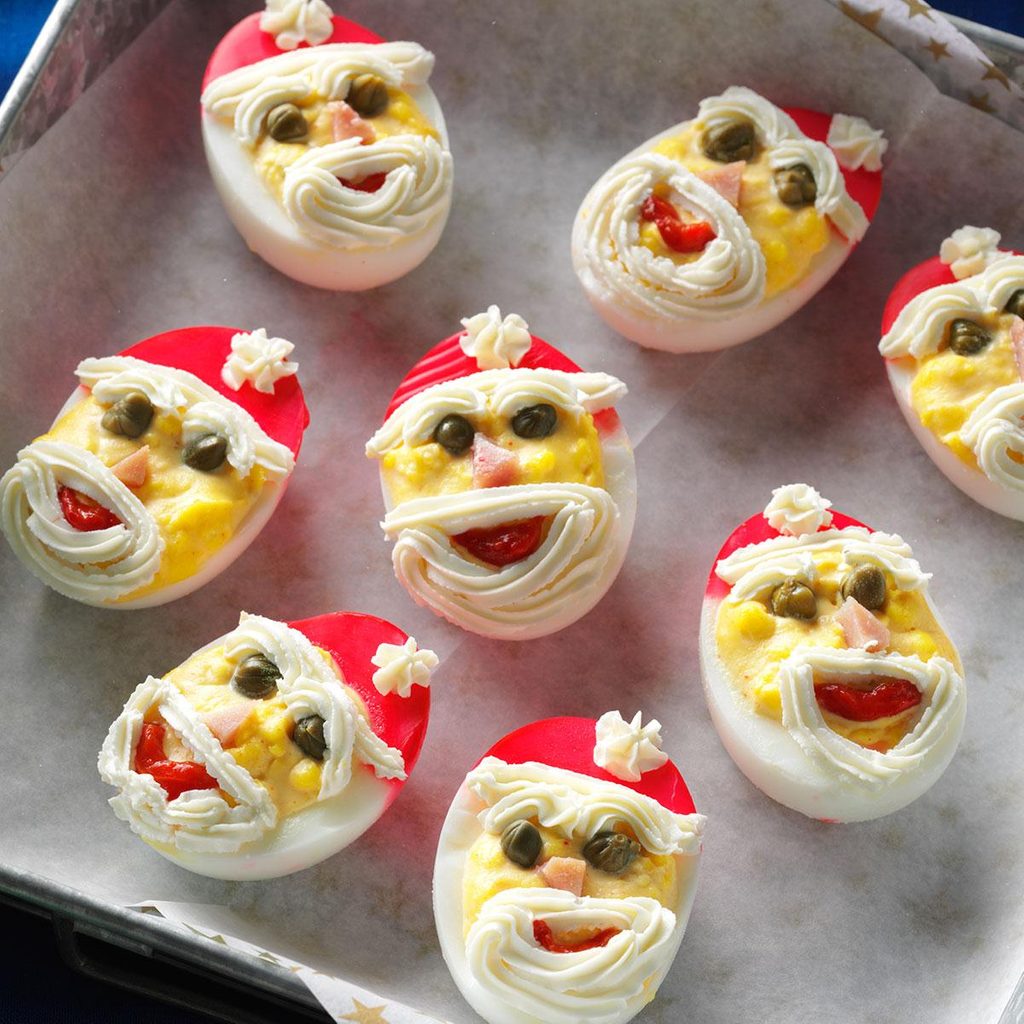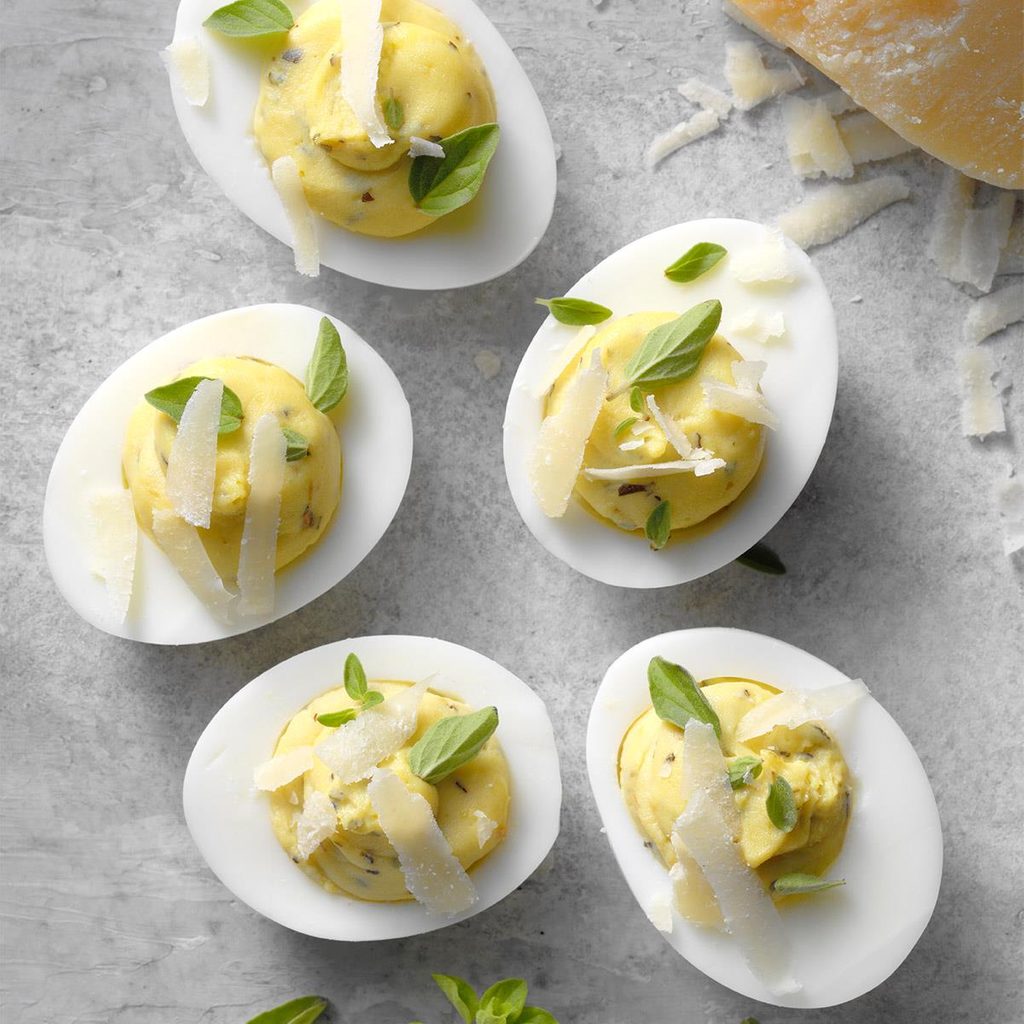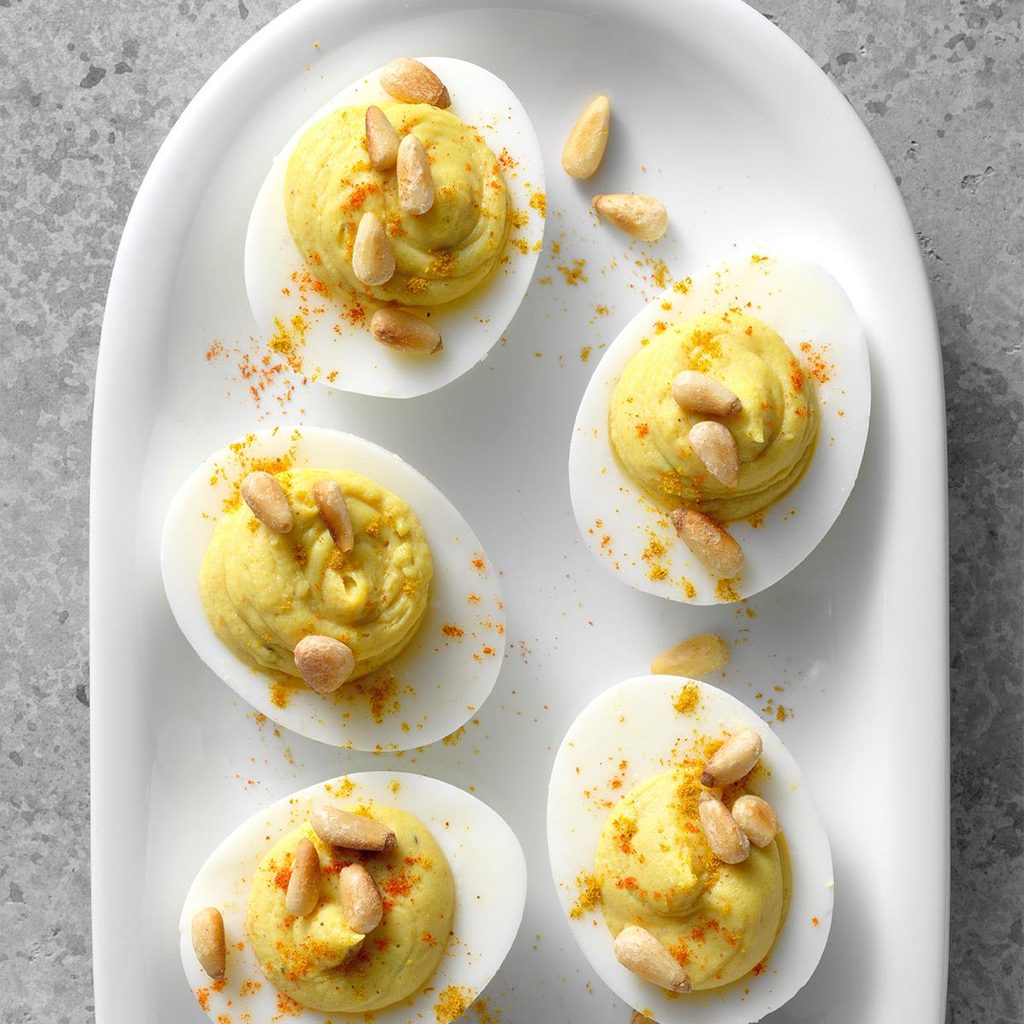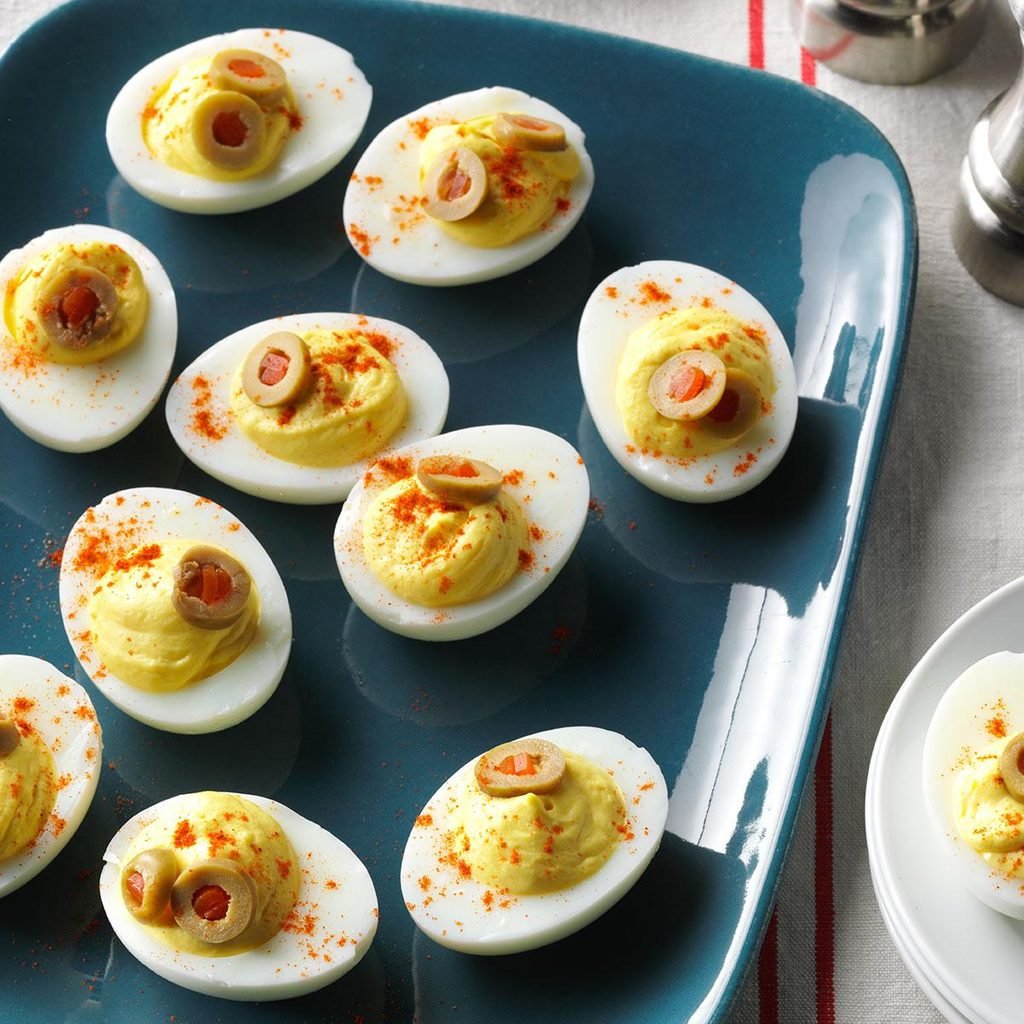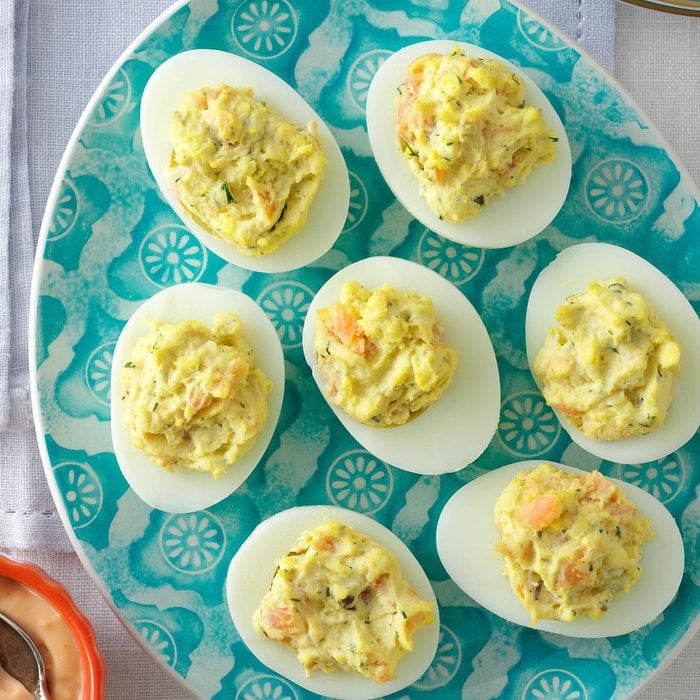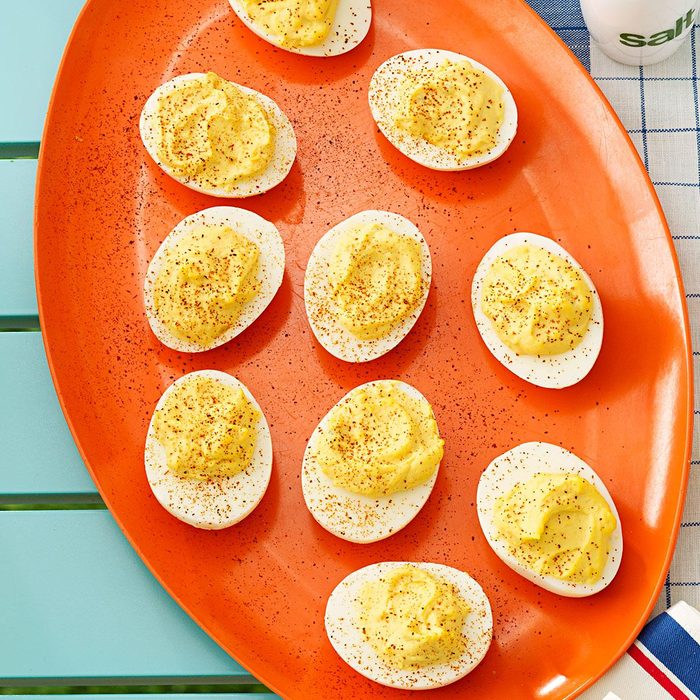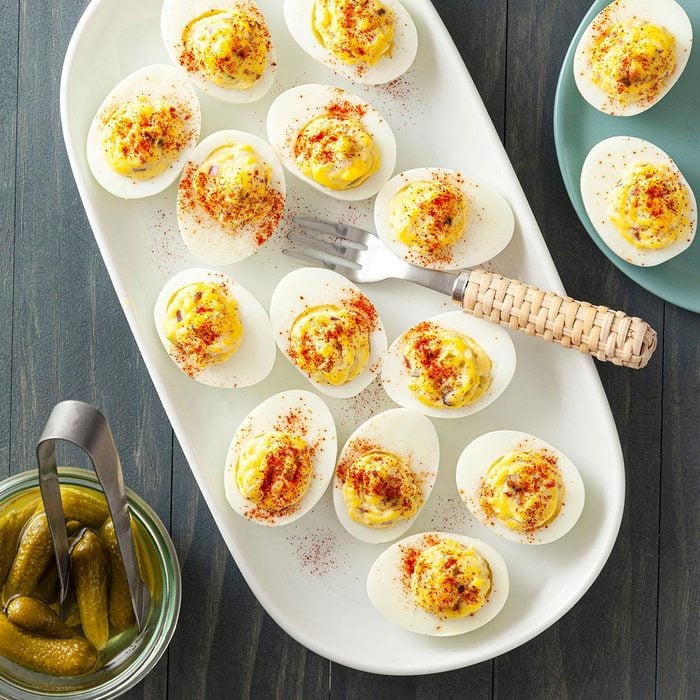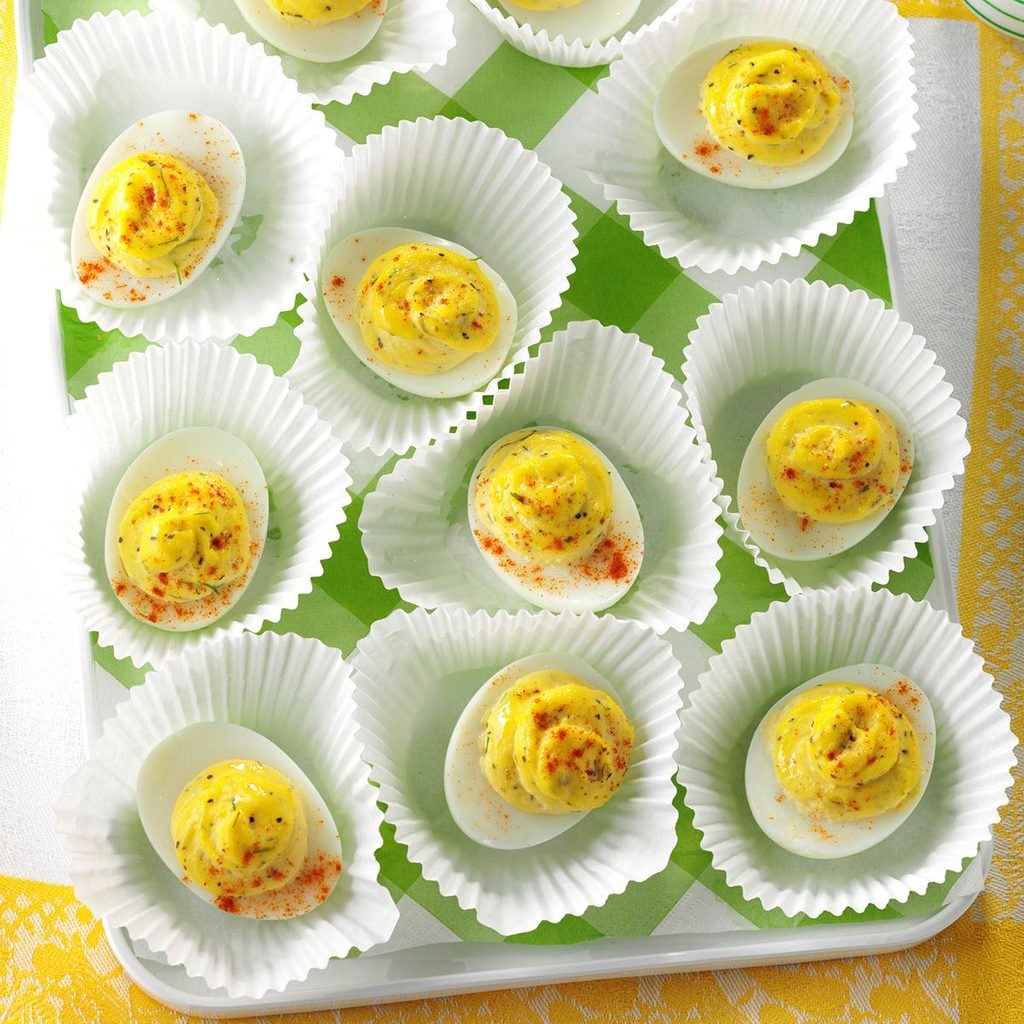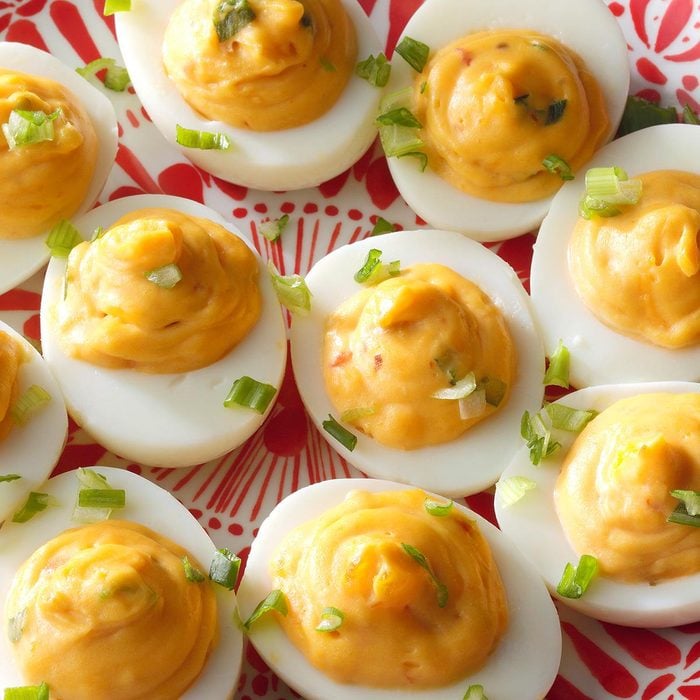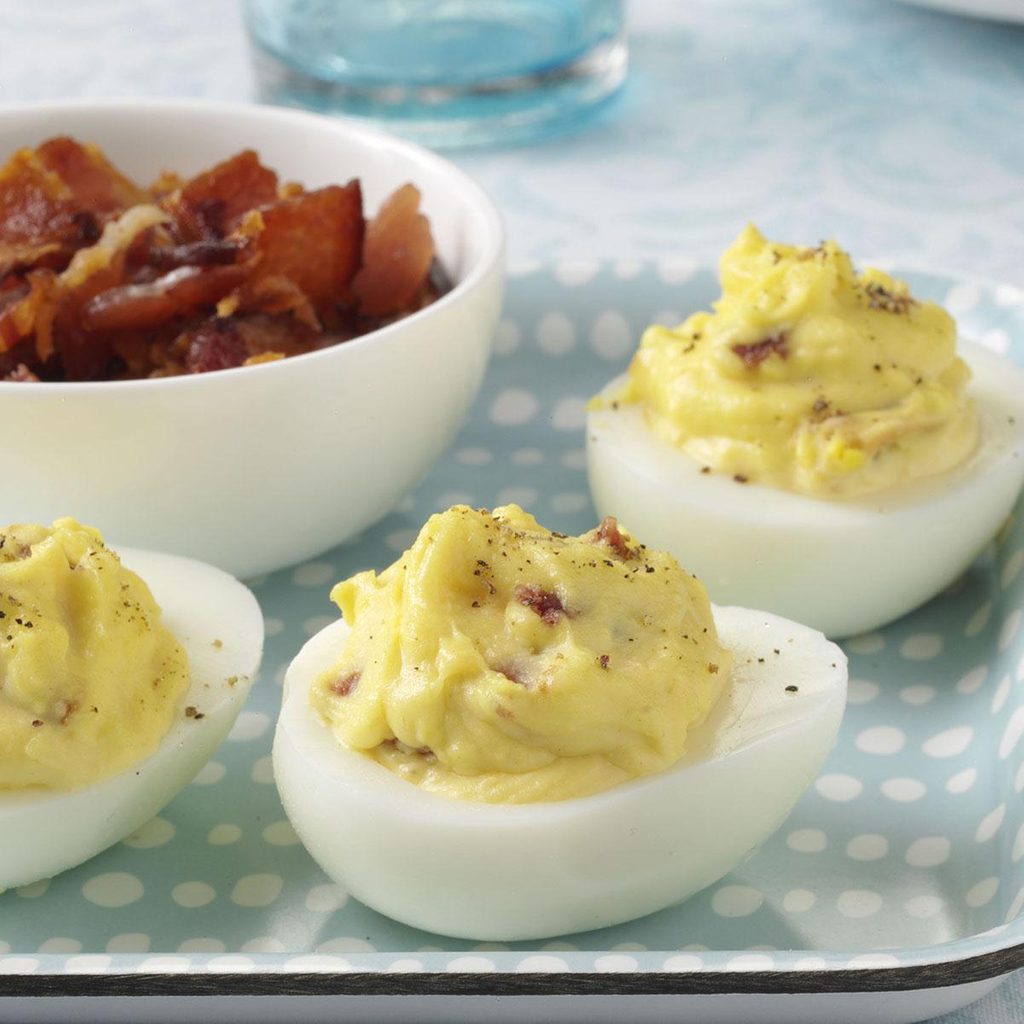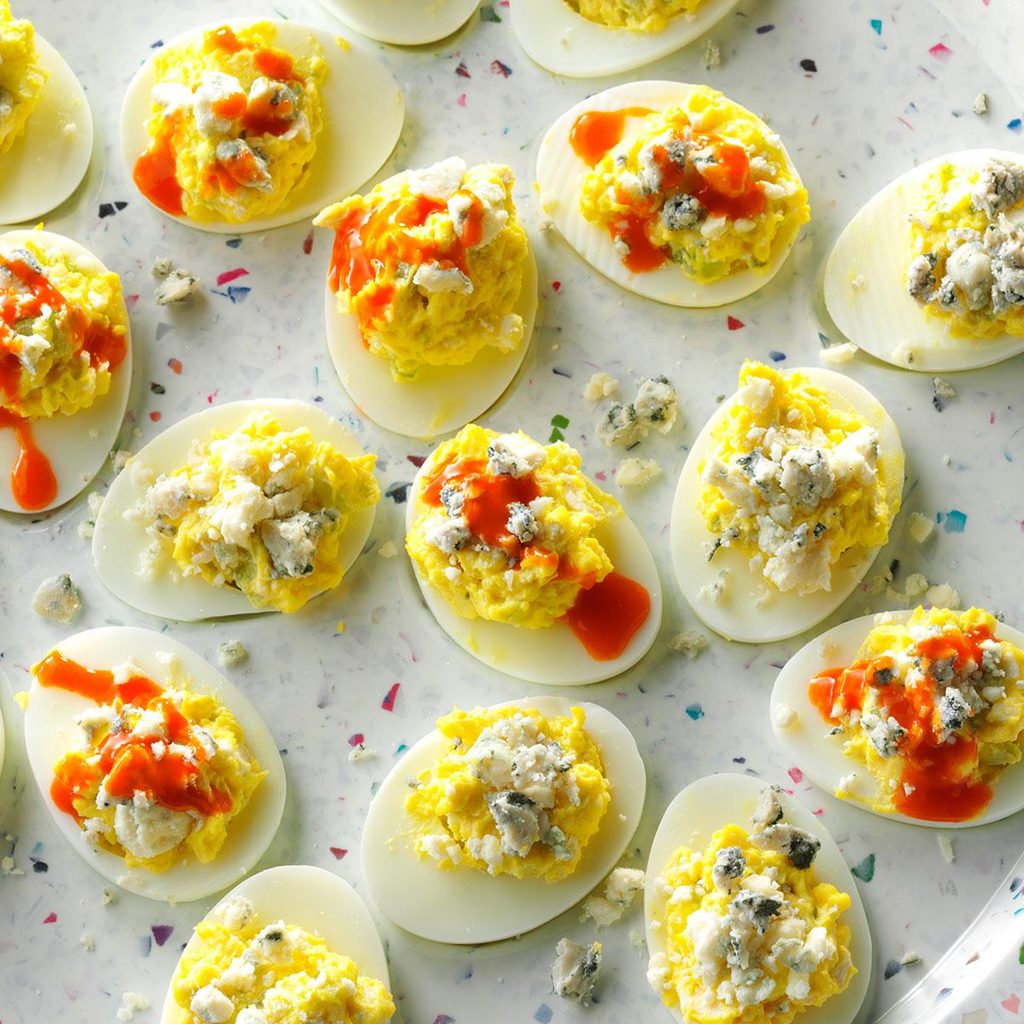ⓘ
Hard-boiled eggs are handy to have around. You can use boiled eggs in egg salad, potato salad, chopped salad, deviled eggs or enjoy an egg as a quick snack on its own. No wonder learning how to boil eggs is an essential kitchen task!
You know the basics: Put eggs in water and bring them to a boil. The trick is to master the temperature and timing to ensure the eggs are cooked just right.
Our guide to boiling eggs demystifies the process, showing you exactly how to boil eggs on the stovetop, with guidelines for soft-boiled and hard-boiled eggs.
What You Need for Boiling Eggs
Eggs
There are many types of eggs, but any eggs can be boiled, so no need to be precious. Just use room temperature eggs, because they will cook more evenly, and the shell is less likely to crack. Remove your eggs from the fridge at least 30 minutes before you plan to cook them. If you forget, submerge the eggs in a bowl of hot water for a few moments before cooking.
You may use farm-fresh eggs for boiling, but older eggs are easier to peel. If your eggs are quite old, do a float test to make sure they’re not rotten. Place the eggs in a bowl of lukewarm water. If they float, they’ve gone bad and should be discarded.
Water
You can use any kind of water to boil eggs, tap or filtered. The one trick is that you don’t bring it to a boil right away! It’s best to start with cold water, and heat the water and eggs together on the stove.
Ice
An ice bath is a simple bowl of ice and cold water. Moving eggs from the boiling water directly into the ice bath brings the cooking process to a quick stop, making it less likely that you’ll overcook the eggs. Plunging the eggs into an ice bath also makes them easier to peel.
Saucepan
Boil eggs in a saucepan that’s just the right size to hold all the eggs plus about an inch of water. Now isn’t the time to bring out a cast-iron pan; a simple, lightweight pan will respond more quickly to changes in temperature, which is what you want.
How to Boil Eggs on the Stovetop
The stovetop method limits the length of time the eggs boil over active heat, reducing the risk of overcooking. You may scale the recipe up or down to cook as many eggs as you like. The cook times assume a true hard boil, leaving you with completely cooked (but not gray or chalky) yolks.
Step 1: Bring to a boil
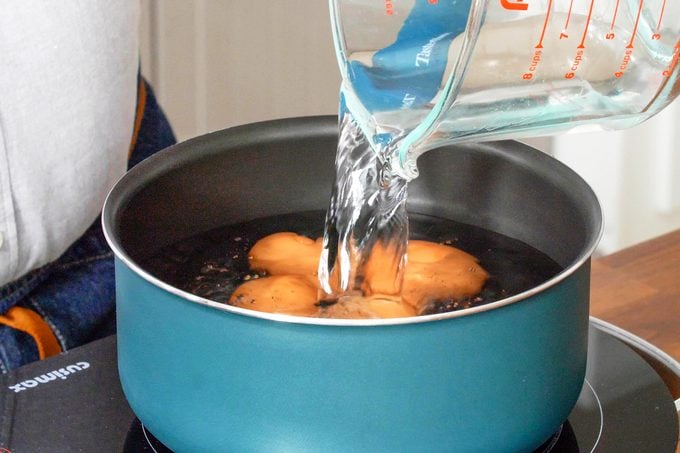 TMB Studio
TMB Studio
Place six large eggs in a single layer in a large saucepan and add enough cold water to cover by one inch. Cover the pan and quickly bring eggs to a boil over high heat.
Step 2: Remove from heat
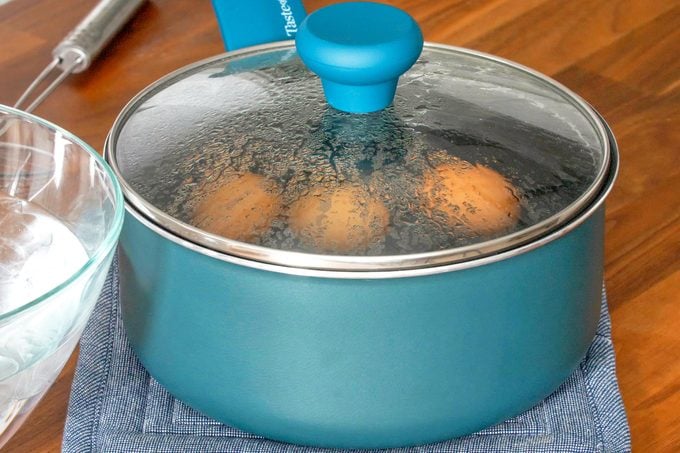 TMB Studio
TMB Studio
As soon as you have a boil, immediately remove the pan from heat and let it stand, covered, for 15 minutes for large eggs. (Let stand 18 minutes for extra-large eggs and 12 minutes for medium eggs.) The residual heat in the water cooks the eggs.
Step 3: Cool quickly
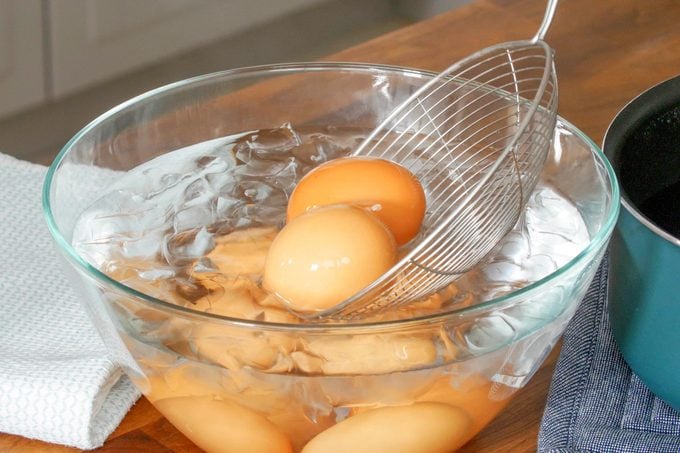 TMB Studio
TMB Studio
After the cook time, drain the eggs, rinse under cold water and place in ice water until completely cooled.
How Long to Boil Eggs
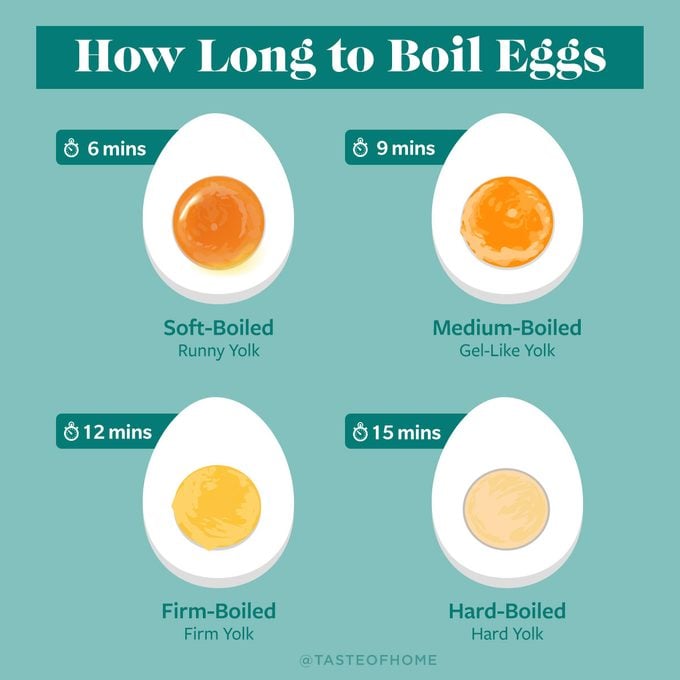 TASTE OF HOME, GETTY IMAGES
TASTE OF HOME, GETTY IMAGES
There’s no strict answer to the question of how long you should boil eggs. It depends on how you like your eggs cooked. If you prefer a runny or gel-like yolk, tweak the cook time accordingly, boiling for about half the time you normally would for a true hard-boiled egg.
Doneness
|
Cook Time
|
Yolk
|
| Soft-Boiled |
6 minutes |
Runny Yolk |
| Medium-Boiled |
9 minutes |
Gel-Like Yolk |
| Firm-Boiled |
12 minutes |
Firm Yolk |
| Hard-Boiled |
15 minutes |
Hard Yolk |
Tips for Making the Best Hard-Boiled Eggs
Why do my eggs crack when I boil them?
Usually, cracked eggs are a result of turbulent cooking. A rapid boil could knock eggs against the side of your cooking instrument and crack the eggshells.
Another reason could be that your eggs are too cold when they’re added to the water. To prevent this, take your eggs out of the fridge at least 30 minutes before you start cooking. Be sure to avoid these other common mistakes you might be making with eggs.
How do you know when boiled eggs are done?
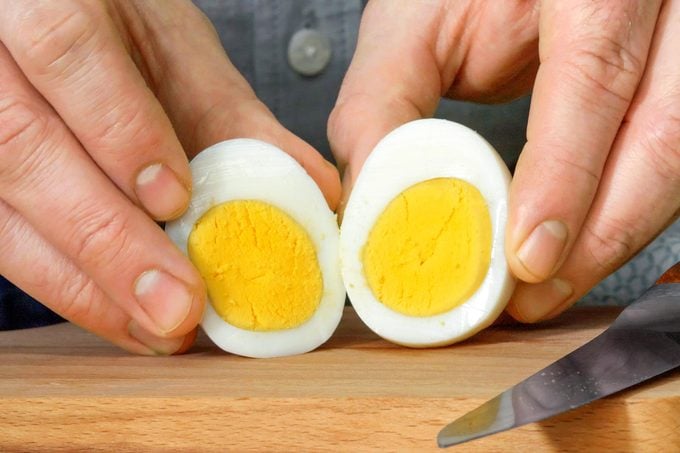 TMB Studio
TMB Studio
The best way to know when hard-boiled eggs are done is to use a timer and follow the cooking method. If you’re worried about overcooking your eggs, pull one out a minute or two early and cut open the egg to check the yolk’s consistency.
Why are my hard-boiled eggs hard to peel?
While a neatly peeled egg is ideal for deviled eggs, for most recipes, a messily peeled egg makes no difference.
The most likely culprit for eggs being hard to peel is that the eggs are too fresh. The shells of fresh eggs will chip much more than eggs that have been in your fridge for a few days. So, always use older eggs for easier peeling. If you’re still having a tough time peeling eggs, take a look at how to peel a hard-boiled egg.
How to Store Hard-Boiled Eggs
Allow hard-boiled eggs to cool completely, then store them in the refrigerator in an airtight container.
How long can you keep hard-boiled eggs in the refrigerator?
Peeled eggs should be eaten the same day, while unpeeled hard-boiled eggs will keep in the fridge for up to one week. If the eggs have gone bad, they will smell distinctly “off,” and have a slimy texture and grayish color.
How do you keep hard-boiled eggs from smelling in the fridge?
To prevent hard-boiled eggs from stinking up your fridge, stick to the recommended shelf life of one week. If they smell, they are probably past their prime. Also, make sure you are storing them in the shell (unpeeled), so they don’t pick up other refrigerator flavors or odors.
Can I freeze hard-boiled eggs?
No, we would not recommend freezing hard-boiled eggs. The whites of previously frozen eggs will have a rubbery texture and be watery.
Other Methods for Making Hard Boiled Eggs
Oven
If your oven is already hot, you can make hard-boiled eggs in it! Technically, this isn’t boiling eggs, since you won’t use any water. Here’s how to cook eggs in the oven.
Instant Pot
You can also boil eggs in the Instant Pot and other pressure cookers. You’ll use the trivet insert and have to keep a close eye on the timing.
Air Fryer
The air fryer has so many surprising uses! You can easily hard-boil eggs in the air fryer. As with the oven method, you won’t use any water here.
Slow Cooker
Boiling eggs in the slow cooker is a good option, especially if you want to cook a large batch of eggs.
Every Way to Make Deviled Eggs
Pickled Pepperoncini Deviled Eggs
As far as deviled eggs variations go, it's hard to resist these adorable deviled trees on our buffet table. The avocado filling has pepperoncini and cilantro for extra zip. —Carmell Childs, Clawson, Utah
Go to Recipe
Sweet and Savory Deviled EggsMy Grandma Phyllis' sweet and savory deviled eggs are unrivaled by any of the ones I've tried. The sweetness of the cherries balances the heat of the jalapeno; celery and pickles give a nice crunch. These snacks are always a party pleaser. —Adrienne Vradenburg, Bakersfield, California
You need to try this
secret ingredient for amazing deviled eggs.
Slim Southwest Deviled EggsWhen you're in the mood for an
easy finger food, try this variation of deviled eggs. They are a cinch to fill and make a popular contribution to a potluck or brunch. —Taste of Home Test Kitchen, Greendale, Wisconsin
Easy Deviled EggsAfter wondering how to make deviled eggs for years, I stumbled across this recipe. It comes from the Durbin Inn, which was a well-known restaurant in Rushville, Indiana, from the 1920s until it closed in the late '70s. These easy deviled eggs are delicious, and they're perfect to make for larger gatherings. —Margaret Sanders, Indianapolis, Indiana
Want to make these delicious eggs pop amidst the huge spread of food? Here’s your guide for preparing
colorful deviled eggs.
Prepping deviled eggs for a party? Don't make these
egg mistakes!
Sweet Onion Pimiento Cheese Deviled EggsFor my mother's 92nd birthday, we had pimiento cheese deviled eggs as part of the spread. They’re timeless and always in good taste. —Linda Foreman, Locust Grove, Oklahoma
Smoked Deviled EggsGive all those leftover Easter eggs a flavor upgrade. Grilling these smoked deviled eggs gives them a distinctive taste that will have everyone talking. —Catherine Woods, Lexington, Missouri
By the way, these are the
best ways to boil eggs.
Pressure-Cooker Garlic-Dill Deviled EggsEaster isn't complete without deviled eggs. I like to experiment with my recipes, and was pleasantly surprised with how the fresh dill really perked up the flavor of these irresistible appetizers. —Kami Horch, Frankfort, Maine
Skull Deviled EggsThrill partygoers with these bone-chilling deviled eggs. The mayonnaise-filled bites are one of my favorite apps, so I had fun creating a Halloween version. —Nick Iverson, Milwaukee, Wisconsin
Slim Asian Deviled EggsWhen you're in the mood for some good finger food, try this sinfully delicious variations on deviled eggs. They are a cinch to create and make a popular contribution to a potluck or brunch. —Taste of Home Test Kitchen, Greendale, Wisconsin
Best Deviled EggsHerbs lend amazing flavor to these deviled eggs, which truly are the best you can make! The recipe includes tasty variations that feature bacon, chipotle peppers and crab.—Jesse & Anne Foust, Bluefield, West Virginia
Bourbon Candied Bacon Deviled EggsAt our house, it doesn’t get any better than deviled eggs with bacon—bourbon candied bacon, that is. See if you can resist them. We can’t. —Colleen Delawder, Herndon, Virginia
Have you ever seen bumps on your eggs?
Here's what it means.
Roasted Garlic Deviled EggsI love incorporating new flavors into old classics, and these garlic deviled eggs were a big hit! The garlic can be roasted and the eggs can be hard-boiled up to three days in advance. The egg yolk filling can be made the night before. —Ellen Weaver, Denver, Colorado
Spinach Deviled EggsSpinach adds unexpected color and flavor to this tasty variation on deviled eggs. They're easy to make and are an attractive addition to a party spread. —Dorothy Sander of Evansville, Indiana
Slim Guacamole Deviled EggsWhen you're in the mood for some good
finger food, try these sinfully delicious avocado deviled eggs. They are a cinch to fill and make a popular contribution to a potluck or brunch. —Taste of Home Test Kitchen
Horseradish Deviled EggsPeople say "Wow!" when they taste these flavorful, tangy horseradish deviled eggs. The bold combination of ground mustard, dill and horseradish is so appealing. The plate is always emptied when I serve these eggs. —Ruth Roth, Linville, North Carolina
Santa Deviled EggsI love creating special deviled eggs for parties. These little Santas are easier to make than they look, and everyone raves over them. —Crystal Schlueter, Northglenn, Colorado
Slim Italian Deviled EggsWhen you're in the mood for a
cold finger food, try these deviled eggs. They are a cinch to fill and are an easy contribution to a potluck or brunch. —Taste of Home Test Kitchen, Greendale, Wisconsin
Slim Curried Deviled EggsWhen you're in the mood for some good finger food, try any one of these sinfully delicious variations on deviled eggs. They are a cinch to fill and make a popular contribution to a potluck or brunch. —Taste of Home Test Kitchen, Greendale, Wisconsin
Makeover Deviled EggsThis updated version of a classic appetizer uses only half the egg yolks of the original recipe and calls for soft bread crumbs to help firm up the filling. We replaced the mayo with fat-free mayonnaise and reduced-fat sour cream. —Taste of Home Test Kitchen
]
Smoked Salmon Deviled EggsFlaky salmon and creamy sauce go so well over hard-boiled eggs. Drizzle the sauce or serve it on the side; it's great either way. —Marinela Dragan, Portland, Oregon
Creamy Herb Deviled EggsThis variation of deviled eggs incorporates ranch dressing and Greek-style yogurt. The eggs fly from the serving dish at work. —Jenni Dise, Lakeside, Arizona
Deviled Eggs with BaconThese yummy deviled eggs went over so well at our summer cookouts, I started making them for holiday dinners, too. Everyone likes the flavorful addition of crumbled bacon. —Barbara Reid, Mounds, Oklahoma
Garlic-Dill Deviled EggsIn my family, Easter isn't complete without deviled eggs. Fresh dill and garlic perk up the flavor of these irresistible appetizers that you'll want to eat on every occasion. —Kami Horch, Calais, Maine
Mexican Deviled EggsWith two young children, my husband and I live on a beautiful lake and host lots of summer picnics and cookouts. I adapted this recipe to suit our tastes. Folks who are expecting the same old deviled eggs are surprised when they try this delightful tangy variation. —Susan Klemm, Rhinelander, Wisconsin
Bacon-Cheddar Deviled EggsI created this recipe a few years ago when I was craving something different to do with hard-boiled eggs. Three of my favorite foods—bacon, eggs and cheese—come together in these deviled eggs. They're my go-to party snack. —Laura LeMay, Deerfield Beach, Florida
Buffalo Chicken Deviled EggsMy daughter Sara loves spicy Buffalo chicken and deviled eggs, so I combined the two. Make and chill a day ahead so the flavors mingle. —Robin Spires, Tampa, Florida








